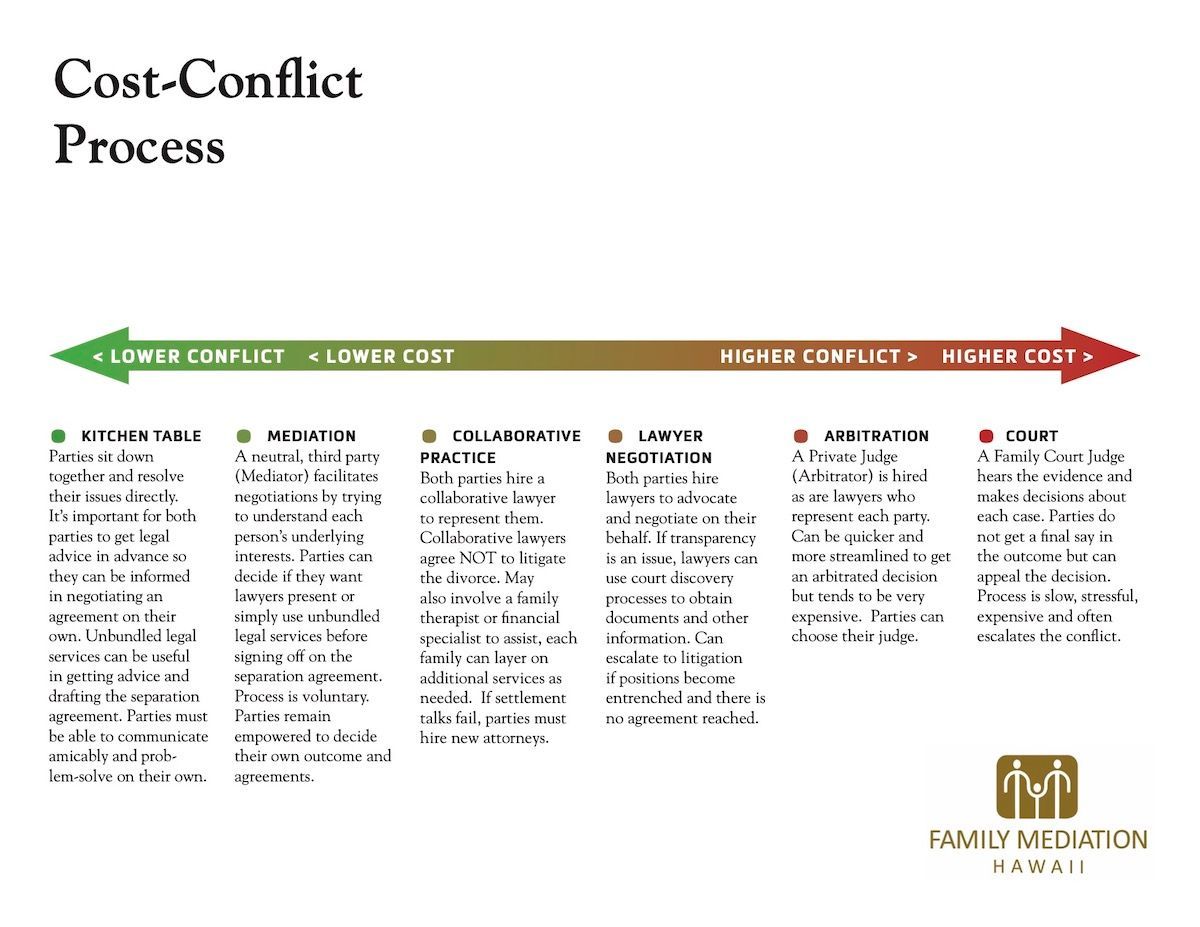Child Custody: What Happens When Parents Cannot Agree?
Ideally, divorcing or separating parents can work together to create a developmentally appropriate Parenting Plan that prioritizes child well-being. Parenting Plans can and should change over time. For example, a schedule that works well for a four (4) year old, may not be appropriate for a thirteen (13) year old.
At Family Mediation Hawaii, we work with parents to draft and memorialize child-focused Parenting Plans that are clear and specific but also allow for flexibility. Co-Parents understand they are always in charge. If Co-Parents mutually agree to change the Parenting Plan, they can do so. However, if Co-Parents cannot agree, then the Parenting Plan is a fallback to ensure children have meaningful access to both Parents, even when they are fighting.
If Co-Parents cannot agree in mediation or through lawyer negotiation on how to share time with or make decisions about their children, the next step is often a Social Study. In Hawai‛i, families will generally engage a Child Custody Evaluator or Best Interest Fact Finder to assess the family.
Child Custody Evaluator (“CE”) . A CE is a licensed mental health professional, such as a Psychiatrist, Psychologist, Marriage and Family Therapist, or Clinical Social Worker. The CE is appointed to work with the family by the Family Court. The CE meets with both parents and children as well as collateral contacts and writes a confidential report that is filed with the Family Court detailing their observations, assessments, and recommendations for the family. Private Custody Evaluations are costly, generally families pay between $6,000-$12,000 to complete the process. If either parent does not agree with the CE’s recommendations, they can challenge them in Court.
The Judiciary maintains a list of approved CEs available here: https://www.courts.state.hi.us/general_information/child_custody_evaluators_registry
Best Interest Fact Finder (“BIFF”) . A BIFF is most often a family law attorney with experience evaluating families in conflict. A BIFF must be mutually selected and agreed upon by both Parents but is generally court-appointed by stipulation. Much like a CE, a BIFF meets with both parents and children as well as collateral contacts and writes a confidential report that is filed with the Family Court detailing their observations and assessments. If agreed by both Parents, a BIFF may also make recommendations. While BIFFs are slightly less costly than Private Custody Evaluations, generally families pay between $5,000-$10,000 to complete the process. If either parent does not agree with the BIFF report, they can challenge it in Family Court.
Bottom Line: While CEs and BIFFs are necessary in many cases, the expense and stress of the process will negatively impact your family. Children are interviewed and observed with both Parents making it difficult to shield them from the conflict. Parents are incentivized to say negative things about their Co-Parent if they are to “win” custody. Parents who love their children are in the best position to decide what is best for them. Handing those decisions to a well-meaning third party who may have their own implicit bias and subjectivity in decision making should be done only when necessary.












